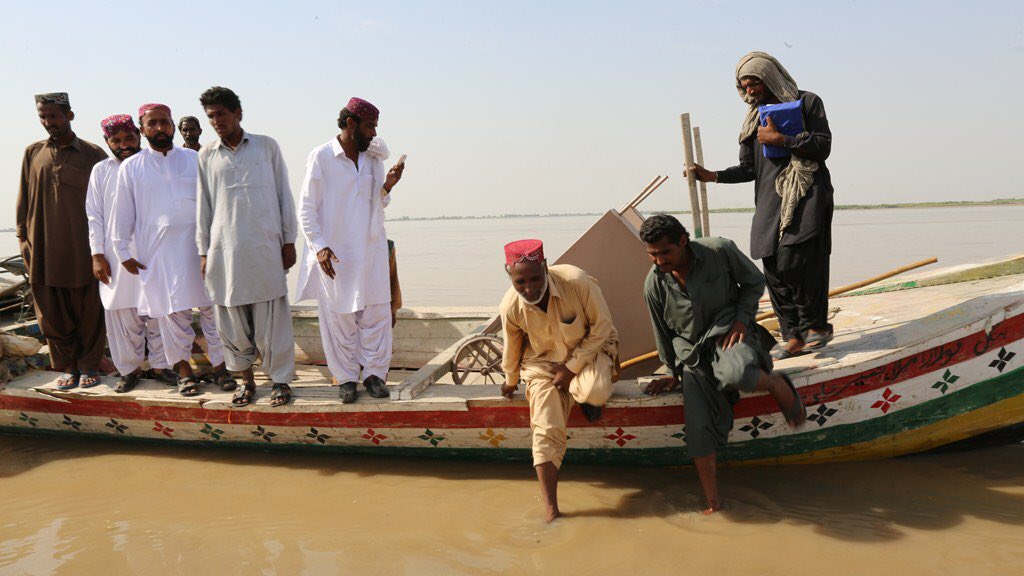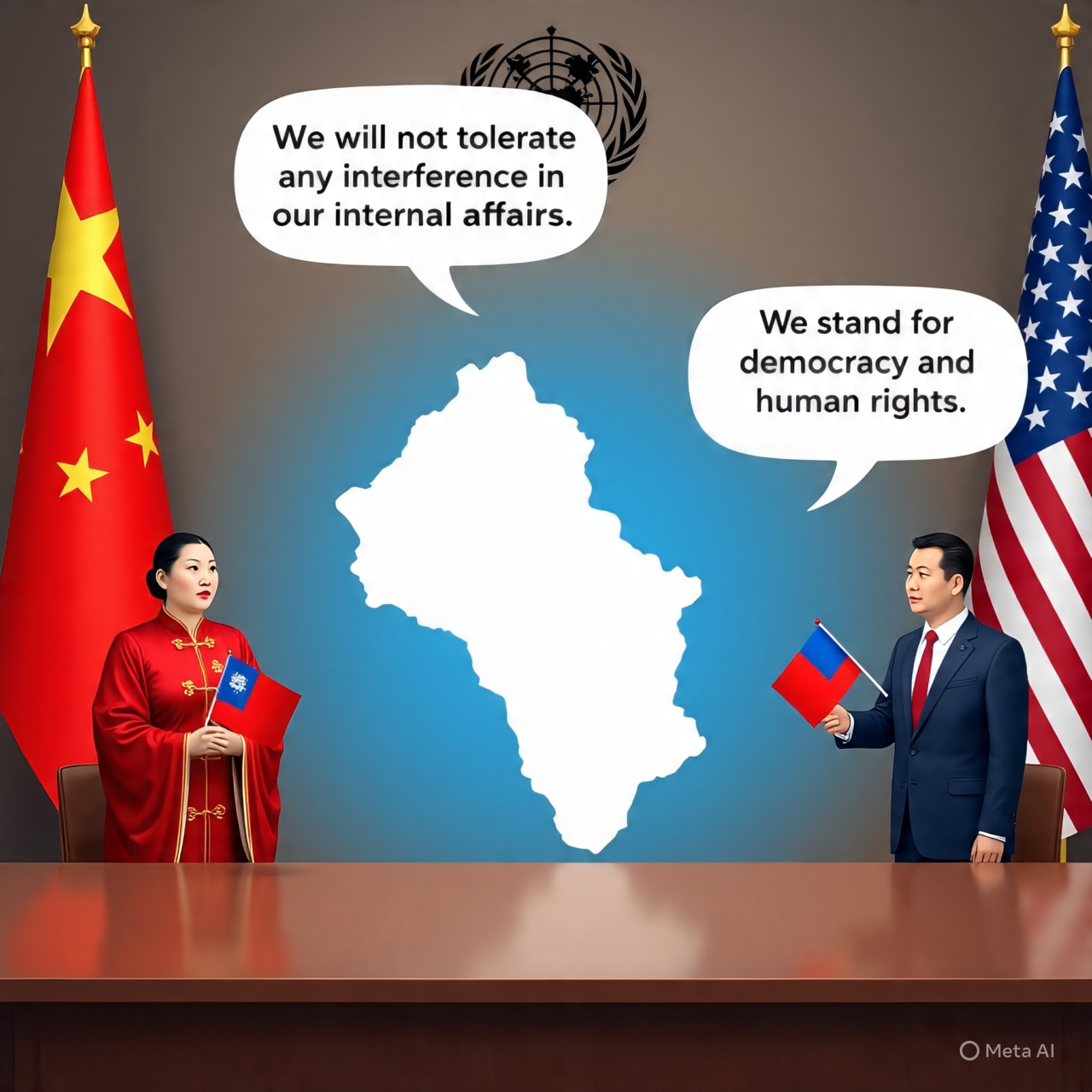State Abandons Kacha to Crime and Chaos
The Kacha region along the Indus River has turned into a battleground where criminal gangs rule. These riverine areas stretch thousands of kilometers across the Punjab-Sindh border. They've become like a separate state where the government has lost control, and bandits now run both farming and society.
How the region became a no-go zone
The riverine katcha areas in upper Sindh and southern Punjab have become places where even police are afraid to go. Kidnapping has grown into a big business that brings in about two billion rupees just in Sindh province. These criminal gangs now use weapons you'd expect to see in war zones - rocket launchers, anti-aircraft guns, and mortars.
This dacoit culture started because of several problems: poverty, weak law enforcement, and fights over land. Some say the government under General Zia ul Haq actually protected these bandits to weaken the Pakistan People's Party in Sindh. Local tribal chiefs or "sardars" help these criminals by giving them weapons, places to hide, and protection. This makes the chiefs more powerful.
Why law enforcement repeatedly fails
Police can't stop these criminals for several reasons. The police don't have good enough weapons or equipment to match what the criminals have. The bandits are so bold they even kidnap police officers, including high-ranking ones.
Corruption in the police force makes things worse. People often say some dacoits work with corrupt police officers. Police chiefs in these areas keep getting replaced, which makes it hard to keep pressure on these criminal groups.
What makes the terrain difficult to control
The Kacha region's geography creates big problems for law enforcement:
· Criminals can easily hide in dense forests and thick trees
· The river creates small islands that become perfect hideouts
· Floods change the landscape every season, making it impossible to keep control
· The area is huge - about 15,000 square kilometers - making it very hard to police properly
These problems - tough terrain, modern weapons, and social issues - have created perfect conditions for bandits. They keep operating freely despite many attempts to stop them.
Neglect of Basic Services Deepens the Crisis
The Kacha region faces more than just security issues. Severe neglect of basic services has created a poverty cycle that stimulates criminal activities. Reports show these areas have Pakistan's most neglected populations. The basic facilities don't exist or show up just on paper.
Schools exist only on paper
The education system in Kacha areas looks good in official documents but fails in reality. "Ghost teachers," their supervisors in district education offices, and political bosses act without consequences. This abandonment of education adds to Pakistan's troubling number of 22.8 million out-of-school children. The country ranks second globally after Nigeria. The literacy rate sits at 62%, putting Pakistan at 160th place among world nations.
Research paints a grim picture. Only 5% of eighth-grade students can solve simple arithmetic problems, and just 10% can answer simple science questions. Most fifth-grade students read and calculate at first-grade levels. These children become functionally illiterate after five years in school.
Healthcare centers serve as private guesthouses
The healthcare situation mirrors the education crisis. Public health centers have turned into private guesthouses. Patients don't get free medicines during emergencies. Families must buy medications from private vendors. The Sindh ombudsman's report explains the "deficient infrastructure and manpower" across the province's healthcare system.
Locals left without roads, electricity, or clean water
Building infrastructure in Kacha regions seems impossible. The area gets the lowest per capita government spending. Traditional infrastructure like roads, schools, hospitals, and markets can't be built because they might affect seasonal waterways. The residents don't have clean water, electricity, or transportation networks.
This systematic neglect creates perfect conditions for criminal elements. Local sardars often step into the power vacuum in these state-abandoned tribal areas. They sometimes form troubling relationships with criminal gangs. Communities fight for basic survival without education, healthcare, and infrastructure. Lawlessness thrives in these conditions. No rehabilitation effort can succeed without fixing these basic problems.
Government Launches Operations but Misses the Root Cause
The Pakistani government has launched many operations against criminals in Kacha since the 1990s, but these efforts don't deal very well with the core problems fueling the crisis.
Timeline of major operations since 1990s
Pakistan's military strategy to tackle the Kacha problem started with Operation Clean-up (also known as Operation Blue Fox) from 1992-1994. Prime Minister Nawaz Sharif launched this initiative, and Benazir Bhutto later expanded it. The country conducted several operations against militant groups in tribal areas after 2001. The army launched Operation Zarb-e-Ahan in 2010 after the notorious Chotu gang took 19 policemen hostage. The operation succeeded in capturing 40 dacoits and freeing the hostages. The Sindh Apex Committee has approved operations against riverine dacoits in 2023, though their execution remains patchy.
Why military involvement hasn't solved the problem
Military interventions keep falling short for several reasons. We targeted the criminals but ignored the social and economic conditions that create them. Law enforcement lacks coordination between provinces, which lets criminals slip across borders to avoid capture. Local tribal leaders' patronage and corruption in law enforcement make these efforts ineffective. One official explained it this way: "The root cause of the problem is clash of interest among influential tribal elders who once used police against their rivals."
How development projects are often abandoned
Tribal areas see many development projects remain unfinished or exist just on paper. The FATA Development Agency lists numerous projects, but locals rarely see actual work on the ground. The planned "Marble City" in Mohmand Agency should have created 6,000 jobs, but it exists mostly in theory. A local National Assembly member raised a valid point: "How is it possible to have development work when the tribal areas are having army operations?" The Kachhi Canal project, which started in 2002, showed early promise but faces constant delays. Officials point to security concerns, but corruption and poor management play an equally significant role in these failures.
What Can Be Done to Reclaim the Region
Pakistan works to reclaim its lawless tribal areas through three connected strategies: building trust, creating strong security infrastructure, and giving local communities the ability to act.
Building trust through education and jobs
Education programs have changed Kacha regions dramatically. The Engro Foundation's 14-year-old education program in Ghotki's riverine belt manages 12 schools in this tough terrain. Former outlaws have started new lives and now promote children's education. Punjab police have set up community schools that give free education, books, and uniforms to dacoits' children. A school in Rojhan turned into a soaring win with its free lunch and books program. Even notorious bandit Attaullah Putt was amazed when he couldn't understand the English words his grandchildren learned.
Jobs creation plays a vital role too. Experts say "the industrial and agriculture sectors need growth to create employment opportunities" that boost incomes and reduce poverty. Each district could get specific land allocation to produce enough food and give farmers good returns.
Establishing permanent police presence and infrastructure
Security forces have set up 110 pickets with 800 personnel in Kacha areas to curb criminal activity. Several important improvements are happening:
· New bridges across the Indus to connect isolated areas
· Road networks linking remote villages to cities
· Permanent police checkpoints throughout the region
Punjab's caretaker Chief Minister revealed a "massive infrastructure development plan" that includes schools, hospitals, and roads. These plans tackle the biggest problem - remote villages lack proper roads to cities, which has made lawlessness worse.
Empowering locals to resist gang influence
Local communities have shown they can fight criminal influence effectively. The Engro Foundation created the Katcha Development Welfare Organization, which local elders and Engro representatives manage together. This gives locals a way to work as one for their region's growth. Community-led projects with government support can help solve why violence happens.
Pakistan can take back these long-forgotten tribal territories by using expandable solutions that mix security measures with development projects.
Conclusion
The Path Forward for Pakistan's Forgotten Territories
Pakistan's Kacha region shows what happens when governance fails its people. Our investigation reveals how these tribal areas became lawless territories where criminal gangs wield military-grade weapons. Without doubt, years of neglect by successive governments created perfect conditions for crime to flourish. Local sardars, instead of serving their communities, maintain troubling alliances with criminal elements. These leaders have become warlords who profit from chaos while their people suffer.
The region lacks simple necessities, which paints a grim picture. Schools only exist on paper, and healthcare facilities serve as private guesthouses. Roads, electricity, and clean water remain out of reach for residents. So many locals face a brutal choice: they can either live in extreme poverty or join criminal gangs. Military operations in the past failed because they didn't deal very well with the mechanisms of the problem.
In spite of that, promising initiatives bring hope. Education programs run by organizations like Engro Foundation show how former outlaws can promote children's education. The establishment of 110 security pickets with permanent police presence proves the commitment to restore these territories. The work of welfare organizations helps equip local communities against criminal influence.
Solving the Kacha crisis needs an all-encompassing approach. Security measures must work with development initiatives. Education and job creation should replace years of abandonment. The task seems daunting, but authorities can reclaim these territories by tackling the original causes that let crime take hold. These forgotten citizens deserve the same rights, opportunities, and protections as all Pakistanis.
(By Mukhtiar Ahmad)



